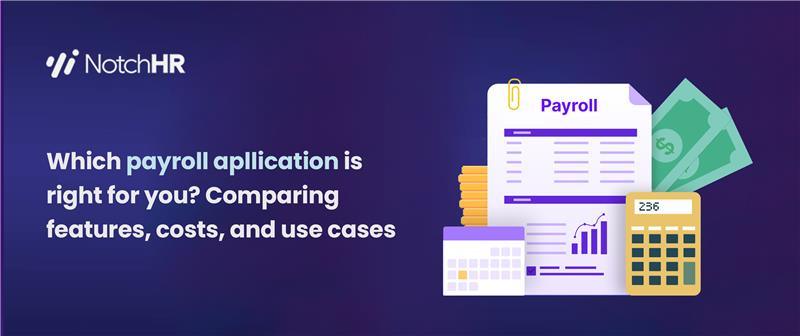Starting a business is like planting a garden, it takes time and effort to make sure all the seeds are planted in the right place and nurtured correctly. In the same way, you wouldn’t want a garden without a gardener, you don’t want a business without an HR/People unit or department. This is why it is important to set up an effective HR team.
Human Resources (HR) is an integral part of any organization, and it is vital to have a well-structured HR department. In this article, we will discuss the importance of setting up an HR department for startups and provide tips on how to set up an effective HR team.
Why Startups Need an HR Unit/Department
Regardless of the size of the company, or who the ‘HR duty’ sits with, the duties of HR remain one of the core needs of a startup. HR manages the payroll system, employee attendance, rewards, leave deduction, and employee benefits. The department can create the foundation for a great work environment with proper workplace policies and procedures implementation. Startups grow faster and increase their profit margin when HR gets skilled and competent employees.
In the case of lean startups, the HR duty may sit with the founder or co-founder. The problems arise when these persons hire the wrong people and sometimes run a trial-and-error employment game. This phenomenon tends to happen because they aren’t trained or experienced in people management. It is understandable because they are likely better at building products or services than managing people.
HR department personnel and functions for startup
HR Manager
The HR manager is responsible for managing the HR department. This person should develop policies and procedures that ensure the employees’ needs are met and the organization runs smoothly. The HR manager is also responsible for recruiting, training, and retaining employees.
Read more on Employee retention strategies here
Recruitment Specialist
The recruitment specialist is responsible for recruiting and hiring employees for the organization. They should develop a recruitment process that ensures that the candidates are a good fit for the organization. The recruitment specialist should also ensure that the job descriptions are accurate, and the compensation package is competitive.
Here are 8 Recruitment tips to help hire the right candidates
Payroll Specialist
The payroll specialist is responsible for managing the organization’s payroll. They should ensure that the employees are paid accurately and on time. The payroll specialist should also manage the administration of the payroll system and ensure that the organization complies with all the relevant laws and regulations related to payroll.
Run Payroll in minutes with NotchHR Payroll System
Training and Development Specialist
As a training and development specialist, the main responsibilities include creating and executing training programs for employees. These programs must cater to their specific needs and assist them in gaining the required skills to carry out their duties competently. It is crucial to offer career development and progression prospects to the employees.
Check out NotchHR Learning Management System for your workforce
Compliance Specialist
The compliance specialist is responsible for ensuring that the organization complies with all the relevant laws and regulations. They should be knowledgeable about employment laws, health and safety regulations, and other legal requirements. The compliance specialist should also develop policies and procedures that ensure compliance with these regulations.
Employee Relations Specialist
The employee relations specialist is responsible for managing employee relations. They should ensure that the employees are happy, motivated, and productive. They should also resolve any conflicts that arise between employees or between employees and management. The employee relations specialist should also create policies that promote a positive work environment.
Benefits Specialist
The benefits specialist is responsible for managing the organization’s employee benefits programs. They should ensure that the employees are aware of the benefits available to them and that the benefits programs are competitive. The benefits specialist should also manage the administration of the benefit programs and ensure that the employees receive the benefits they are entitled to.
HR Administrator
The HR administrator is responsible for the day-to-day administration of the HR department. This person should ensure that the HR department runs smoothly and that the employees’ needs are met. The HR administrator should also manage the HR department’s documentation and ensure that all the relevant documents are up-to-date and organized.
Tips On How To Set Up An Effective HR Team
Define Your HR Needs
Before you start setting up your HR team, it’s essential to define your HR needs. Determine the roles and responsibilities that you need to fill, the skills and experience required for each role, and the budget you have available for HR. This will help you create job descriptions that attract the right candidates for the job.
Hire the Right People
To set up an effective HR team, it’s crucial to hire people with the right skills and experience. Look for candidates who have experience in your industry, understand your business goals, and share your values. It’s also essential to hire people who are good communicators, problem solvers, and team players.
Free Recruitment solution for you
Develop Policies and Procedures
The HR department should develop policies and procedures that ensure that the employees’ needs are met and that the organization runs smoothly. These policies should cover recruitment, training and development, compliance, employee relations, benefits, payroll, and documentation. The policies and procedures should be communicated clearly to all employees.
Train Your HR Team
It’s essential to provide your HR team with the training they need to perform their duties effectively. This includes training on recruitment, training and development, compliance, employee relations, benefits, payroll, and documentation. The training should be tailored to meet the specific needs of your HR team.
Use Technology
Using technology can help streamline your HR processes and make them more efficient. PwC HR Technology’s Survey indicates that 58% of businesses use HR technology to find, attract and retain talent. There are many HR software solutions available that can help you manage recruitment, training and development, compliance, employee relations, benefits, payroll, and documentation. Using technology can also help you automate some of your HR processes, saving you time and money. Making use of technological solutions like NotchHR can help you `simplify your HR department.
Learn more about NotchHR here
Create a Positive Work Environment
Creating a positive work environment is essential for employee satisfaction and retention. The HR department should develop policies that promote a positive work environment, such as flexible working hours, work-life balance, and recognition programs. The HR department should also ensure that the employees have access to the resources they need to perform their duties effectively.

Conclusion
Setting up an HR department is essential for startups. The HR department is responsible for recruiting, training, and retaining employees, ensuring compliance with laws and regulations, managing employee relations, and providing benefits and payroll services. To set up an effective HR team, you should define your HR needs, hire the right people, develop policies and procedures, train your HR team, use technology, and create a positive work environment. By following these tips, you can create an HR department that helps your startup achieve its goals and attracts and retains the best talents.



